—
The Eco-Friendly Lie
Greenwashing
—
“Greenwashing”
Refers to camouflage environmentalism—compound word for "green" and "white washing"
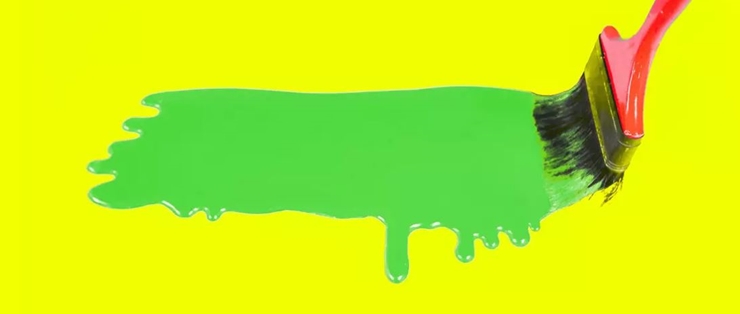
(image source: World Economic Forum)
Phytoncide air freshener, organic toothpaste, All-Natural Shampoo.
These “eco-friendly” products are commonly found around us. But if you look closely, there is no explanation as to how much natural ingredients are used. There are many cases where only a small percentage of the ingredients are included. This is so-called greenwashing that deceives consumers.
The climate change and eco-friendliness are emphasized, the more often we hear the word "greenwashing." What exactly does greenwashing mean?
Greenwashing refers to camouflage environmentalism. Greenwashing is "whitewashing", which means to apply a layer of paint to cover the essential problem. "Greenwashing" is a compound word combining the concept of "whitewashing" (the phenomenon of hiding crimes or unpleasant facts) with "green" meaning the environment. It refers to the act of promoting an eco-friendly image by exaggerating or falsely promoting an eco-friendly image, even though the product or service is not actually eco-friendly to obtain economic benefits. In other words, “pretending to be eco-friendly.”
It is known that the term greenwashing was first mentioned in an essay on a trip to Fiji by American environmentalist Jay Westerveld in 1986. At the time, the Fiji resort he visited was urging customers to reuse towels to protect the sea and coral reefs. However, the resort was building new bungalows that were far from protecting the environment. He came to realize the reuse of towels was not to protect the environment but to reduce laundry costs, so he coined the term "greenwashing." |
—
Environmental awareness of consumers ↑
Corporate Greenwashing ↑
—
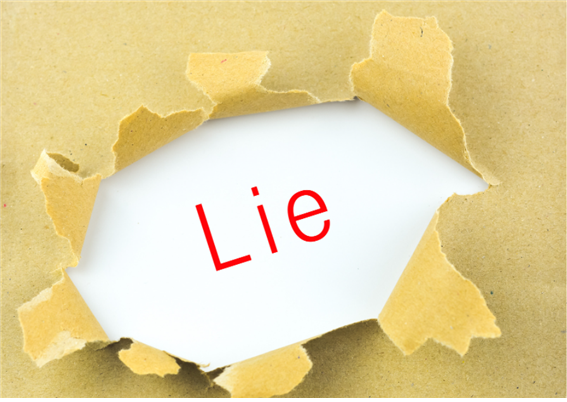
Why do companies do greenwashing? Because they want to look good. They want to create an image of a company that cares about the environment, improve relationships with relevant organizations, partners, and the government, and win the trust of consumers. Consumer confidence is linked to increased financial profits.
As eco-friendliness and sustainability become important issues around the world, consumer awareness of the environment is increasing. Recently, as ESG management has emerged as a mainstream worldwide and consumers’ interest in the environment has increased, “environmentally friendly” has become an issue crucial to the survival of a company.
http://www.sunhakpeaceprize.org/kr/news/issue.php?bgu=view&idx=521
(Link to ESG related article at Sunhak Peace Prize)
* ESG = “Environmental & Social Governance”
▲ Korea: 1/3 of Consumers Consider Corporate Eco-Friendly Activities When Purchasing Products
"KB Trend Report" published by KB Financial Group: According to the ESG and Eco-Friendly Consumption Behavior Report (issued Sept. 2021), one-third of Korean consumers consider "the company's eco-friendly activities when purchasing products." In addition, it said they are willing to purchase eco-friendly products even if they are 10% more expensive.
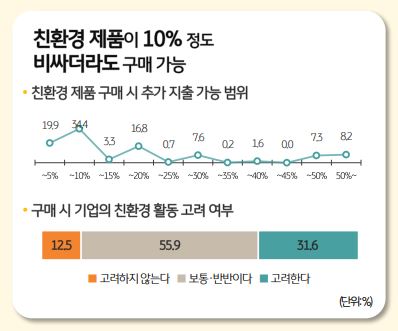
https://www.kbfg.com/kbresearch/report/reportView.do?reportId=2000182
(Link to report)
▲ U.K.: 31% of online shoppers prefer "green" brands
According to a recent Forbes report, 31% of UK online shoppers prefer brands perceived as “green” and 37% want to order inside the UK to reduce their carbon footprint. (Forbes Report, July 2021)
(Click here for English text of the article)
—
Cases where the Only “Eco-Friendly”
Pattern is Greenwashing
—
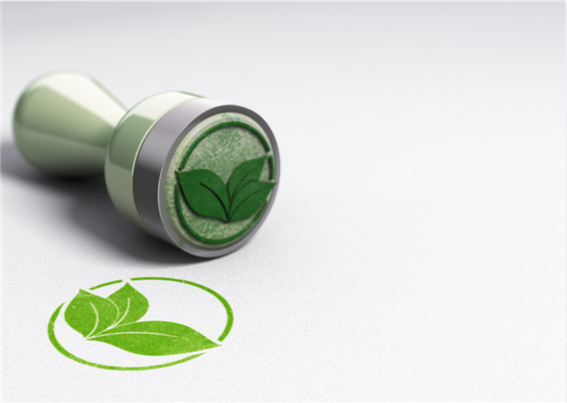
▲ Company sells "Paper Bottle" actually made from plastic
In April 2021, BBC [British Broadcasting Company] aired the controversy over the "Paper Bottle" marketed by a famous Korean cosmetics company. The company marketed its cosmetics wrapped inside with recyclable plastic and the outside sported a paper label. They stated that the product was made with 51.8% less plastic compared to other existing products and explained how to separate and recycle it.
However, the fact that the bold letters ‘HELLO, I’M PAPER BOTTLE’ on the bottle wrapper misled consumers to assume the entire container was made of paper and led to controversy and a boycott of greenwashing. In response, the company said, "We apologize for the confusion and for not delivering more accurate information."
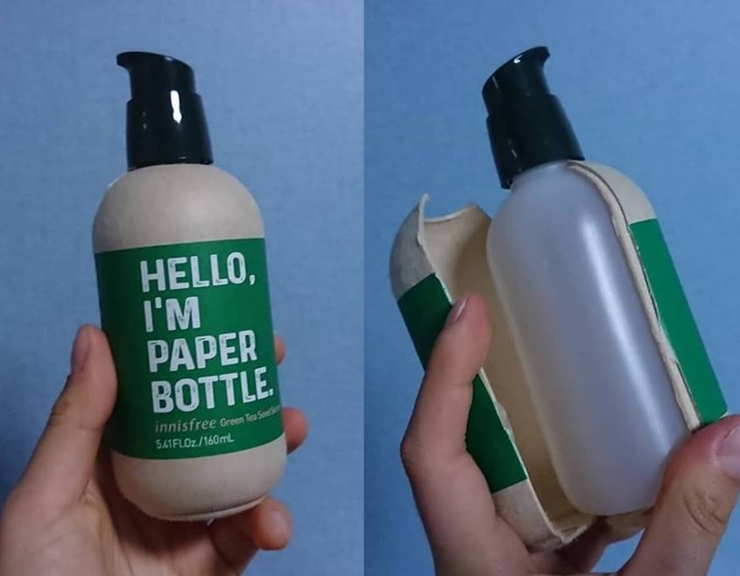
(Photo source:Facebook)
▲ Country: Saudi Arabia with 50 billion trees?
Nations are also being taken to task for greenwashing. Saudi Arabia, a major oil producer, announced in March 2021 that it would plant 50 billion trees to achieve zero carbon emissions by 2060.
However, as Saudi Arabia, a water-scarce country, announced the world's largest reforestation plan, details of the plan were not disclosed. At this point, critics came out saying, "It's a greenwashing joke to plant tens of billions of trees when there is no river."
https://www.eco-business.com/news/11-brands-called-out-for-greenwashing-in-2021/
(Refer to this site for greenwashing examples with more details)
▲ NGO: Environmental group supported by plastic companies
Singapore's non-profit organization, the Alliance to End Plastic Waste (AEPW) reportedly spent $1.5 billion on plastic waste cleaning.
However, according to a Reuters report in Jan. 2021, the group was found to have been greenwashed. The group is backed by oil companies like Royal Dutch Shell and Exxon Mobil, and it turns out that these companies plan to dramatically increase plastics production.
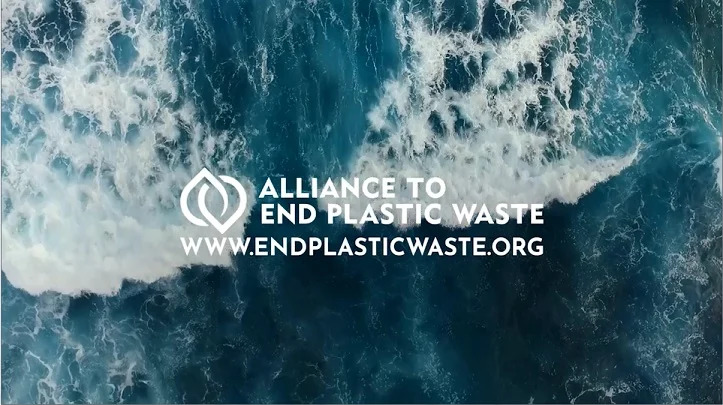
—
Seven smart ways to identify greenwashing
—
So how can we detect greenwashing? The representative standards mentioned are the seven standards established by Terra Choice, a Canadian eco-friendly consulting firm, in 2010.
Terra Choice dispatched a greenwashing investigation team to large retailers in the UK, US, Canada, and Australia twice in 2007 and 2009 to conduct environmental quality investigations on 10,419 products in a total of 4,705 product groups.
As a result of the survey, it was found that most of the companies did not provide evidence to prove their eco-friendliness, but rather used vague phrases and inappropriate certification labels to hide their non-environmental effects.
The findings confirmed that at least one case of greenwashing appeared in 98% of products in 2007 and 95% of products in 2009. The joke that companies are “selling the environment” to deceive consumers is not uncommon.
Shall we take a look at the "Seven Sins of Green Washing" report released by this company?
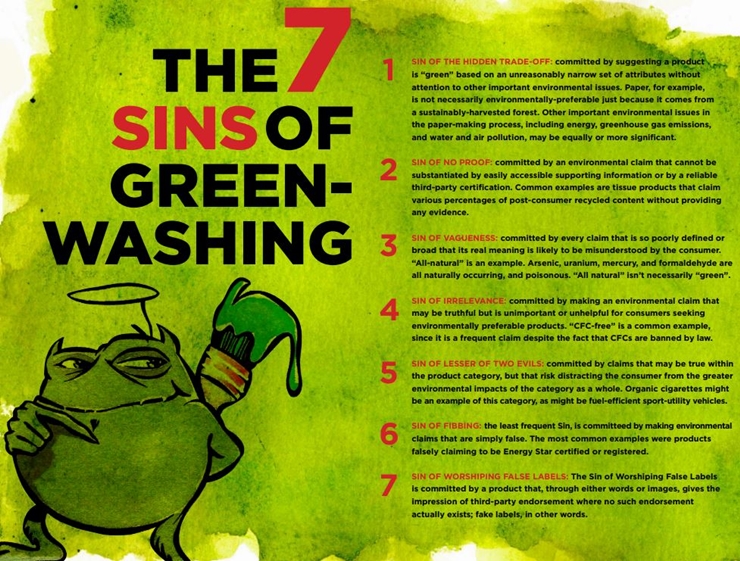
http://faculty.wwu.edu/dunnc3/rprnts.TheSinsofGreenwashing2010.pdf
(Go to original document)
1. The Hidden Tradeoff
The producers and sellers focus only on some eco-friendly attributes of a product and do not disclose the negative impact on the environment as a whole. For example, when recycled paper is used, it appears to be eco-friendly and sustainable, but in reality, a chlorine bleaching process harmful to humans and the environment is used in the process of manufacturing recycled paper, which has a big impact on the environment, so it cannot be called eco-friendly.
2. No Proof
A firm claims that its product is environmentally friendly, but they lack or offer no specific information or evidence to support such claim. In other words, the advertisement emphasizes it as an eco-friendly product, but does not provide eco-friendly certification labels or information.
3. Vagueness
Firms employ a wide range of ambiguous, empty slogans advertising the eco-friendliness of the product. For example, they use catch phrases such as 'chemical-free' or 'non-toxic' on the label without further explanation to mislead consumers. The term ‘all-natural’ is typical, while in fact toxic substances such as arsenic, mercury and formaldehyde also occur naturally.
4. Irrelevance
The boast is true, but what the firm claims as "environmental" is unimportant or unhelpful. For example, a spray has no CFCs (compounds that destroy the ozone layer) and thus is labeled as ‘CFC-free’ even though the use of CFCs is prohibited anyway. It is a case of misleading consumers in a clever way by exploiting the information asymmetry between the supplier and the consumer.
5. The Lesser of Two Evils
It is true that a portion of the product contains eco-friendly components, but in reality, the product is harmful to the environment; it is a way of justifying harmful products by emphasizing their essential aspects. For example, the word “eco-friendly” on pesticides distracts consumers from their real harm to both people and nature. This includes organic cigarettes and fuel-efficient SUVs.
6. The Sin of Fibbing
To call a spade a spade it’s false advertising. The boast is true, but what the firm claims as "environmental" is unimportant or unhelpful. Such advertising omits or mislabels the ingredients in products or uses non-accredited environmental certification seals or slogans in advertisements or promotions as if their product has been certified by a reputable institution.
7. Worshipping False Labels
This advertising ploy gives the impression that a third party guarantees it by attaching a fake label. For example, a spray has no CFCs (compounds that destroy the ozone layer) and thus is labeled as ‘CFC-free’ even though the use of CFCs is prohibited anyway. It is a case of misleading consumers in a clever way by exploiting the information asymmetry between the supplier and the consumer. For example, a firm may misrepresent its product as being certified eco-friendly by what is in fact a weak private institution, while disguising it to make it appear to comply with international standards or legal standards.
▲ At the World Economic Forum in 2021, two types of greenwashing were disclosed.
1. Selective Disclosure
Concealing negative aspects of products while advertising positive points about environmental performance. Same as the hidden trade-off effect, No. 1 of the seven sins Terra Choice lists above.
2. Symbolic Actions
Boasts that pump up minor issues without meaningful action. For example, a fashion brand donates to UNICEF without addressing the child labor problem in its production process.
https://www.weforum.org/agenda/2021/05/how-spot-greenwashing/
(Link to World Economic Forum document)
—
The Harm of Greenwashing: Distrust
“Is it really eco-friendly?"
—
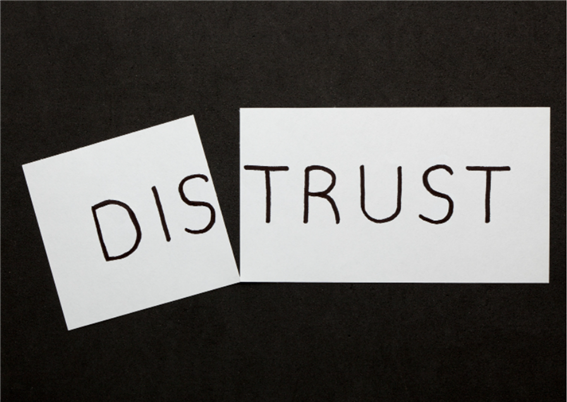
What kind of harm does green washing cause? How do you feel when you find out that a friend you trusted lied to you? First of all, you feel a strong sense of betrayal. And the feeling of betrayal leads to misgivings about friendship and distrust of people in general, which has the effect of making you suspicious even of friends who are honest and true.
The same goes for greenwashing--where companies pretend to be eco-friendly by exploiting consumers' increased environmental awareness and good motives. Greenwashing confuses consumers' wise judgment, disillusions their environmentally conscious mindset, and creates distrust in an eco-friendly market.
In other words, the real harm of green washing is that it undermines the will of companies to make real eco-friendly efforts and foments a general distrust of eco-friendliness in society.
—
To prevent greenwashing
pass regulatory laws + protect consumers:
—
What must be done to solve greenwashing? First, it is most effective to seek ways to improve the legal tools and standard guidelines related to greenwashing regulations at the government level.
Major developed countries are managing greenwashing by establishing guidelines for displaying eco-friendly information. In 47 nations around the world, including the U.S., Japan, France, and the U.K., 27 different environmental labeling systems and committees have created and implemented sample guidelines for greenwashing.
▲ United States
The Federal Trade Commission (FTC) of the U.S. has created The Green Guide since 1992 to provide legal interpretation standards applicable to environmental labels and advertisements. Violation of the guidelines can result in fines of millions of dollars.
https://www.ftc.gov/news-events/topics/truth-advertising/green-guides
▲ The United Kingdom
In 2021, the Competitive Markets Agency (CMA) of the U.K. announced the “Green Claims Code”, an eco-friendly marketing guideline, determining to strictly crack down on greenwashing from 2022.
【6 Principles of the Green Claim Code】 · Be truthful and accurate · Be clear and unambiguous · Do not omit or hide important information · Comparison should be fair and meaningful · Consider the entire life cycle of a product or service · Any claim must be substantiated |
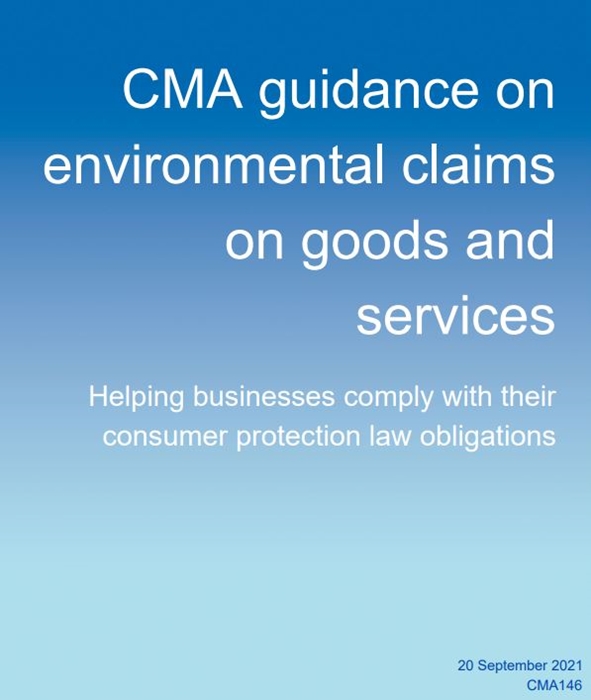
▲ European Union (EU)
From March 2021, the European Union has mandated the disclosure of sustainability information related to investment activities and products by financial institutions in the European Union through the Sustainable Financial Disclosure Regulation (SFDR).
In addition, in April 2022, revised guidelines were announced for consumer protection and prevention of greenwashing. If environmental performance cannot be established, the use of eco-friendly phrases such as ‘eco-friendly’, ‘green’, and ‘eco’ is prohibited.
Although various efforts are being made at the government level to regulate greenwashing, it will be some time before regulatory legislation is proposed and implemented.
If there is a strong check on our corporations by smart and demanding consumers, will it become a stepping stone toward change in regulation? If we consumers see words such as 'eco-friendly', 'eco', or 'organic' on products or advertisements, first of all, we should step back and determine whether it is greenwashing or not.
Written by Sharon Choi
Director of Planning
Sunhak Peace Prize Secretariat

